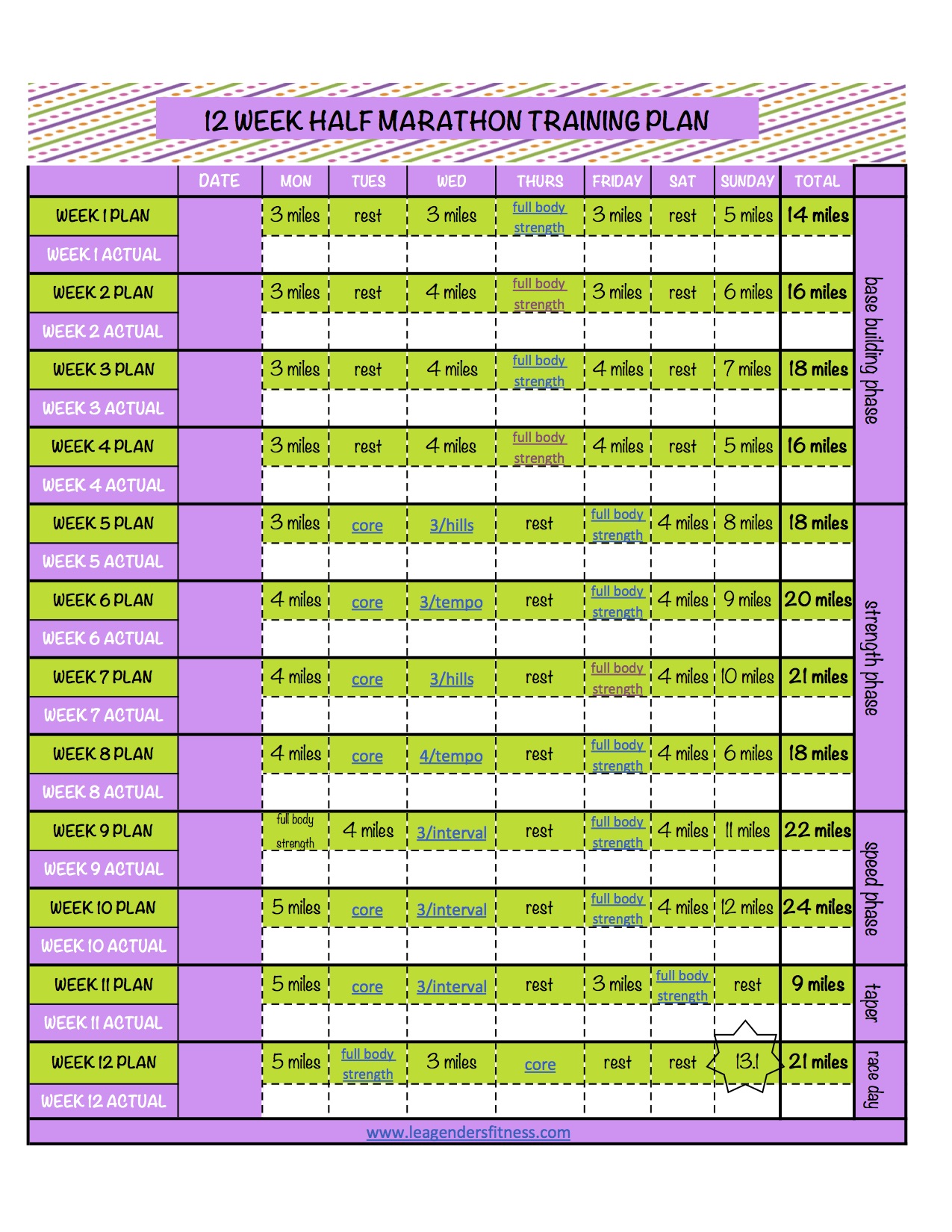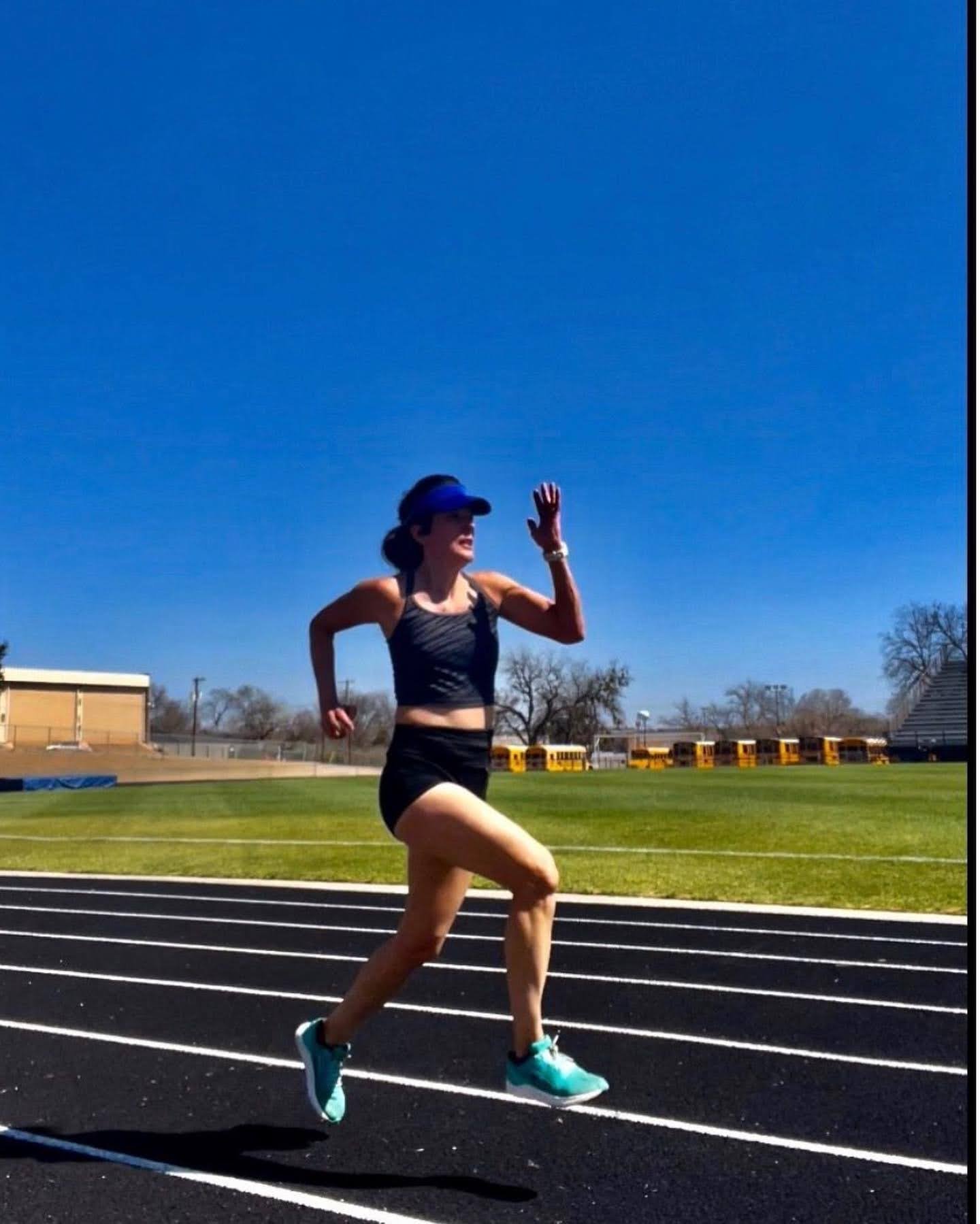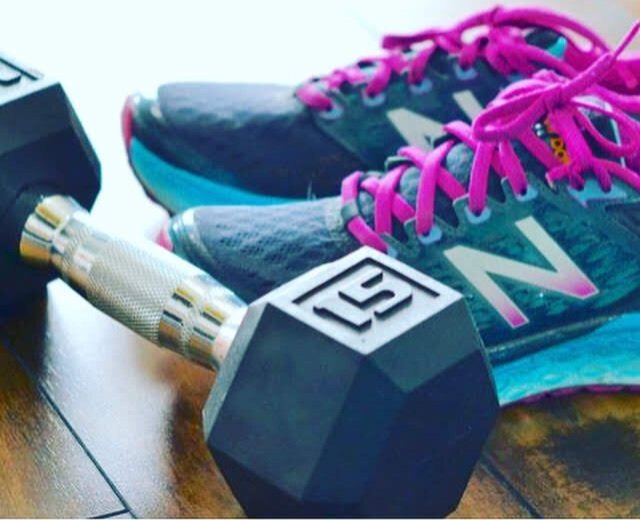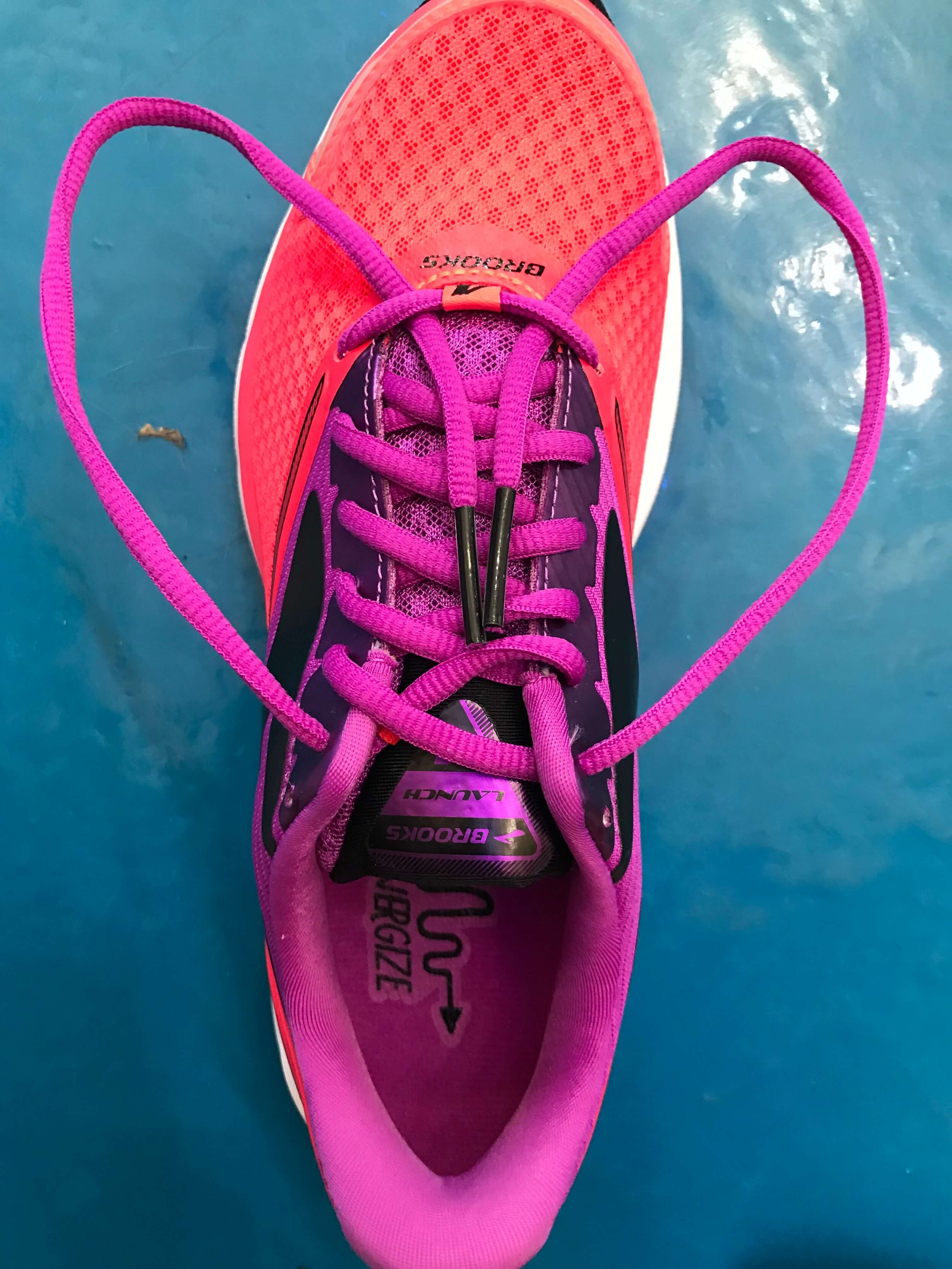Hello, friends. I am excited to tell you that I just registered for the Dallas Rock 'n' Roll half marathon in March. If you want to run it with me, I have a discount code (code:LEAGENDERS) from the rock 'n' roll marathon series because I am a 2016 rock 'n' blogger. This code worked for all 2016 races and works for some of the early 2017 races, including Dallas.
Would you like to train with me? For Workout Wednesday I am thrilled to share my personal 12 week half marathon training plan.
I haven't been running long distances much this fall/winter so it is time to start training for my half marathon at the end of March 2017. Following a training plan is a great way to stay motivated to exercise well into the new year.
I starting building a training plan to get myself back up to 13.1 miles. I am happy to share it with you but as always, there are a few caveats. First of all, I am a certified running coach, but I am not your running coach. Since I don't know your exercise abilities, injury background or medical history, please see your doctor before beginning any new exercise program. This program is intended for an advanced beginner or intermediate runner. You should be able to run at a conversational pace (meaning you can hold a full conversation without gasping for breath while running at a slow pace) before starting this program.
Because I am who I am (the strength training for runners coach), this half marathon training plan may not look like your typical plan. My plan includes strength training days because I think they are really important. While running will be my priority, I will still find a day or two each week for strength training. A full body strength training day and a core day once a week should be sufficient.
THIS 12 WEEK HALF MARATHON TRAINING PLAN IS BROKEN INTO FOUR PHASES
BASE BUILDING PHASE
Even though I am an experienced runner, it is still a good idea to start any plan with a base building period. Since I haven't been running a lot lately, I gave myself four weeks to build a base. Depending on your current fitness level, you could shorten this phase. All runs in this phase should be done at conversational pace. We will slowly start to build our long run in this phase.
STRENGTH PHASE
When I talk about strength in this context, I am a referring to running strength. We will start to incorporate hills and tempo runs into our workouts.
SPEED PHASE
The speed phase for half marathon training includes running intervals. I generally recommend no less than 1/2 mile intervals for half marathon speed work. We don't spend a lot of time doing shorter intervals for half marathon training.
TAPER PHASE
This is when we will back off the milage and long runs to taper in order to prepare for race day.
You may notice that that there are rest days, easy run days and/or core days immediately following high intensity days. We always want to allow low intensity days like core work and conversational pace milage after high intensity days to allow our bodies to properly recover. Remember that our bodies adapt, get stronger and faster during rest, not during the workout. Allowing the proper recovery is an essential part of this half marathon training plan.
I included a PDF printable download at the end of the post so that you can print out the half marathon training plan and fill in your actual mileage each week. Running plans should always be dynamic, meaning that you should be willing to change and adjust as needed along the way. If I was your running coach, we would review your log at the end of the week and based on how you felt and performed, we would make adjustments if necessary. It is important when following a plan from the internet that you don't look at it as a rigid all-or-nothing plan.
The perfect plan is one that fits into your lifestyle. If you feel you need an extra rest day after a long run, then take it. If you have to swap a running day and a strength training day because you can only get to the gym on certain days, then swap them. If you need to do your long run on Saturday instead of on Sunday, then do it. As a coach, I wouldn't expect you to complete the plan exactly as written for 12 weeks. Life happens, things change. This is not an excuse to blow-off the plan, but rather permission to make appropriate changes as needed. The most important part of the plan is to build the long runs and weekly mileage slowly over time.
I caution you not skip any rest days or add more mileage to the plan unless you are an experienced runner who has completed many half marathons. The mileage build-up is strategic. Doing too much too soon is one of the biggest mistakes runners make.
Are you ready to start training? I invite you to download my 12 week half marathon training plan printable PDF so you can log your progress along the way.
Like this post? Please consider sharing or saving to Pinterest
Coach Lea

































A lot of nutrition guides for half marathon training are overly complicated and aimed at elite athletes, which can be intimidating for the average runner. This blog post is about taking the pressure off by treating your fueling as a personal, no-math-required experiment throughout your 12-to-16-week training cycle. As a health coach and personal trainer, my goal is to give you simple, straightforward guidelines so you can figure out what works best for your body, ensuring you have the energy needed to train well, recover fully, and cross the finish line feeling strong.